The Time Machine — EN
VII
A Sudden Shock
“As I stood there musing over this too perfect triumph of man, the full moon, yellow and gibbous, came up out of an overflow of silver light in the north-east. The bright little figures ceased to move about below, a noiseless owl flitted by, and I shivered with the chill of the night. I determined to descend and find where I could sleep.
“I looked for the building I knew. Then my eye travelled along to the figure of the White Sphinx upon the pedestal of bronze, growing distinct as the light of the rising moon grew brighter. I could see the silver birch against it. There was the tangle of rhododendron bushes, black in the pale light, and there was the little lawn. I looked at the lawn again. A queer doubt chilled my complacency. “No,” said I stoutly to myself, “that was not the lawn.”
“But it was the lawn. For the white leprous face of the sphinx was towards it. Can you imagine what I felt as this conviction came home to me? But you cannot. The Time Machine was gone!
“At once, like a lash across the face, came the possibility of losing my own age, of being left helpless in this strange new world. The bare thought of it was an actual physical sensation. I could feel it grip me at the throat and stop my breathing. In another moment I was in a passion of fear and running with great leaping strides down the slope. Once I fell headlong and cut my face; I lost no time in stanching the blood, but jumped up and ran on, with a warm trickle down my cheek and chin. All the time I ran I was saying to myself: “They have moved it a little, pushed it under the bushes out of the way.” Nevertheless, I ran with all my might. All the time, with the certainty that sometimes comes with excessive dread, I knew that such assurance was folly, knew instinctively that the machine was removed out of my reach. My breath came with pain. I suppose I covered the whole distance from the hill crest to the little lawn, two miles perhaps, in ten minutes. And I am not a young man. I cursed aloud, as I ran, at my confident folly in leaving the machine, wasting good breath thereby. I cried aloud, and none answered. Not a creature seemed to be stirring in that moonlit world.
“When I reached the lawn my worst fears were realized. Not a trace of the thing was to be seen. I felt faint and cold when I faced the empty space among the black tangle of bushes. I ran round it furiously, as if the thing might be hidden in a corner, and then stopped abruptly, with my hands clutching my hair. Above me towered the sphinx, upon the bronze pedestal, white, shining, leprous, in the light of the rising moon. It seemed to smile in mockery of my dismay.
“I might have consoled myself by imagining the little people had put the mechanism in some shelter for me, had I not felt assured of their physical and intellectual inadequacy. That is what dismayed me: the sense of some hitherto unsuspected power, through whose intervention my invention had vanished. Yet, for one thing I felt assured: unless some other age had produced its exact duplicate, the machine could not have moved in time. The attachment of the levers – I will show you the method later – prevented any one from tampering with it in that way when they were removed. It had moved, and was hid, only in space. But then, where could it be?
“I think I must have had a kind of frenzy. I remember running violently in and out among the moonlit bushes all round the sphinx, and startling some white animal that, in the dim light, I took for a small deer. I remember, too, late that night, beating the bushes with my clenched fist until my knuckles were gashed and bleeding from the broken twigs. Then, sobbing and raving in my anguish of mind, I went down to the great building of stone. The big hall was dark, silent, and deserted. I slipped on the uneven floor, and fell over one of the malachite tables, almost breaking my shin. I lit a match and went on past the dusty curtains, of which I have told you.
“There I found a second great hall covered with cushions, upon which, perhaps, a score or so of the little people were sleeping. I have no doubt they found my second appearance strange enough, coming suddenly out of the quiet darkness with inarticulate noises and the splutter and flare of a match. For they had forgotten about matches. “Where is my Time Machine?” I began, bawling like an angry child, laying hands upon them and shaking them up together. It must have been very queer to them. Some laughed, most of them looked sorely frightened. When I saw them standing round me, it came into my head that I was doing as foolish a thing as it was possible for me to do under the circumstances, in trying to revive the sensation of fear. For, reasoning from their daylight behaviour, I thought that fear must be forgotten.
“Abruptly, I dashed down the match, and, knocking one of the people over in my course, went blundering across the big dining-hall again, out under the moonlight. I heard cries of terror and their little feet running and stumbling this way and that. I do not remember all I did as the moon crept up the sky. I suppose it was the unexpected nature of my loss that maddened me. I felt hopelessly cut off from my own kind – a strange animal in an unknown world. I must have raved to and fro, screaming and crying upon God and Fate. I have a memory of horrible fatigue, as the long night of despair wore away; of looking in this impossible place and that; of groping among moon-lit ruins and touching strange creatures in the black shadows; at last, of lying on the ground near the sphinx and weeping with absolute wretchedness. I had nothing left but misery. Then I slept, and when I woke again it was full day, and a couple of sparrows were hopping round me on the turf within reach of my arm.
“I sat up in the freshness of the morning, trying to remember how I had got there, and why I had such a profound sense of desertion and despair. Then things came clear in my mind. With the plain, reasonable daylight, I could look my circumstances fairly in the face. I saw the wild folly of my frenzy overnight, and I could reason with myself. “Suppose the worst?” I said. “Suppose the machine altogether lost – perhaps destroyed? It behooves me to be calm and patient, to learn the way of the people, to get a clear idea of the method of my loss, and the means of getting materials and tools; so that in the end, perhaps, I may make another.” That would be my only hope, perhaps, but better than despair. And, after all, it was a beautiful and curious world.
“But probably, the machine had only been taken away. Still, I must be calm and patient, find its hiding-place, and recover it by force or cunning. And with that I scrambled to my feet and looked about me, wondering where I could bathe. I felt weary, stiff, and travel-soiled. The freshness of the morning made me desire an equal freshness. I had exhausted my emotion. Indeed, as I went about my business, I found myself wondering at my intense excitement overnight. I made a careful examination of the ground about the little lawn. I wasted some time in futile questionings, conveyed, as well as I was able, to such of the little people as came by. They all failed to understand my gestures; some were simply stolid, some thought it was a jest and laughed at me. I had the hardest task in the world to keep my hands off their pretty laughing faces. It was a foolish impulse, but the devil begotten of fear and blind anger was ill curbed and still eager to take advantage of my perplexity. The turf gave better counsel. I found a groove ripped in it, about midway between the pedestal of the sphinx and the marks of my feet where, on arrival, I had struggled with the overturned machine. There were other signs of removal about, with queer narrow footprints like those I could imagine made by a sloth. This directed my closer attention to the pedestal. It was, as I think I have said, of bronze. It was not a mere block, but highly decorated with deep framed panels on either side. I went and rapped at these. The pedestal was hollow. Examining the panels with care I found them discontinuous with the frames. There were no handles or keyholes, but possibly the panels, if they were doors, as I supposed, opened from within. One thing was clear enough to my mind. It took no very great mental effort to infer that my Time Machine was inside that pedestal. But how it got there was a different problem.
“I saw the heads of two orange-clad people coming through the bushes and under some blossom-covered apple-trees towards me. I turned smiling to them and beckoned them to me. They came, and then, pointing to the bronze pedestal, I tried to intimate my wish to open it. But at my first gesture towards this they behaved very oddly. I don’t know how to convey their expression to you. Suppose you were to use a grossly improper gesture to a delicate-minded woman – it is how she would look. They went off as if they had received the last possible insult. I tried a sweet-looking little chap in white next, with exactly the same result. Somehow, his manner made me feel ashamed of myself. But, as you know, I wanted the Time Machine, and I tried him once more. As he turned off, like the others, my temper got the better of me. In three strides I was after him, had him by the loose part of his robe round the neck, and began dragging him towards the sphinx. Then I saw the horror and repugnance of his face, and all of a sudden I let him go.
“But I was not beaten yet. I banged with my fist at the bronze panels. I thought I heard something stir inside – to be explicit, I thought I heard a sound like a chuckle – but I must have been mistaken. Then I got a big pebble from the river, and came and hammered till I had flattened a coil in the decorations, and the verdigris came off in powdery flakes. The delicate little people must have heard me hammering in gusty outbreaks a mile away on either hand, but nothing came of it. I saw a crowd of them upon the slopes, looking furtively at me. At last, hot and tired, I sat down to watch the place. But I was too restless to watch long; I am too Occidental for a long vigil. I could work at a problem for years, but to wait inactive for twenty-four hours – that is another matter.
“I got up after a time, and began walking aimlessly through the bushes towards the hill again. “Patience,” said I to myself. “If you want your machine again you must leave that sphinx alone. If they mean to take your machine away, it’s little good your wrecking their bronze panels, and if they don’t, you will get it back as soon as you can ask for it. To sit among all those unknown things before a puzzle like that is hopeless. That way lies monomania. Face this world. Learn its ways, watch it, be careful of too hasty guesses at its meaning. In the end you will find clues to it all.” Then suddenly the humour of the situation came into my mind: the thought of the years I had spent in study and toil to get into the future age, and now my passion of anxiety to get out of it. I had made myself the most complicated and the most hopeless trap that ever a man devised. Although it was at my own expense, I could not help myself. I laughed aloud.
“Going through the big palace, it seemed to me that the little people avoided me. It may have been my fancy, or it may have had something to do with my hammering at the gates of bronze. Yet I felt tolerably sure of the avoidance. I was careful, however, to show no concern and to abstain from any pursuit of them, and in the course of a day or two things got back to the old footing. I made what progress I could in the language, and in addition I pushed my explorations here and there. Either I missed some subtle point or their language was excessively simple – almost exclusively composed of concrete substantives and verbs. There seemed to be few, if any, abstract terms, or little use of figurative language. Their sentences were usually simple and of two words, and I failed to convey or understand any but the simplest propositions. I determined to put the thought of my Time Machine and the mystery of the bronze doors under the sphinx as much as possible in a corner of memory, until my growing knowledge would lead me back to them in a natural way. Yet a certain feeling, you may understand, tethered me in a circle of a few miles round the point of my arrival.
to muse on/upon/over ⇒ To think/pore over, to ponder.
gibbous ˈgɪbəs adj More than half but less than fully illuminated (used of the moon).
to come up ⇒ To appear.
 owl aʊl n Nocturnal bird of prey, having a broad head with large, forward-directed eyes that are usually surrounded by disks of modified feathers.
owl aʊl n Nocturnal bird of prey, having a broad head with large, forward-directed eyes that are usually surrounded by disks of modified feathers.
flit flɪt v To move quickly from one location to another: hover, flutter, flicker
shiver ˈʃɪvə v To shake slightly because of cold, fear, etc: tremble, shudder, vibrate, shake, quake
chill ʧɪl n Relative lack of warmth: cold, coolness, coldness, chilliness
descend dɪˈsɛnd v To move from a higher to a lower place; come down.
my eye travelled along ⇒ I directed my eyes to.
 pedestal ˈpɛdɪstl n An architectural base for a statue.
pedestal ˈpɛdɪstl n An architectural base for a statue.
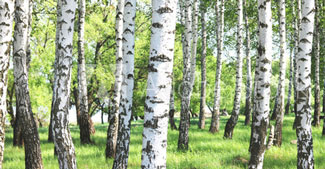 birch bɜːʧ n Deciduous tree with flowers in catkins, simple, toothed leaves, and bark that often peels in thin papery layers.
birch bɜːʧ n Deciduous tree with flowers in catkins, simple, toothed leaves, and bark that often peels in thin papery layers.
tangle ˈtæŋgl n A twisted and tangled mass that is highly interwoven.
rhododendron ˌrəʊdəˈdɛndrən n An evergreen ornamental shrub with clusters of variously coloured, often bell-shaped flowers.
queer kwɪə adj Deviating from the customary: strange, curious, odd, peculiar, singular, quaint, weird
complacency kəmˈpleɪsnʌsi n Feeling of contentment or self-satisfaction: satisfaction, content, peace, pleasure, happiness, comfort, peace of mind, well-being
stoutly ˈstaʊtli adv In capable of withstanding considerable stress or hardship: strongly
leprous ˈlɛprəs adj Having a chronic, mildly contagious disease characterized by ulcers of the skin and leading to loss of sensation, paralysis, gangrene, and deformation.
conviction kənˈvɪkʃən n The feeling of being sure that what you believe or say is true: belief, faith, creed, view, opinion
to come home tosomeone or something ⇒ To be understood or realized by someone.
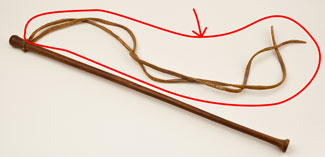 lash læʃ n The flexible part of a whip.
lash læʃ n The flexible part of a whip.
stride straɪd n Single long step.
to fall headlong = headfirst, foremost ⇒ To fall with the head first.
stanch stɑːnʧ v To stop blood from flowing.
to run on ⇒ To keep on running.
trickle ˈtrɪkl n A flow of liquid in a small stream.
all the time ⇒ During the whole period.
out of the way ⇒ far away; secluded.
with all my might ⇒ with all my possible strength.
dread drɛd n Fearful expectation or anticipation.
folly ˈfɒli n Foolish behaviour: absurdity, insanity, foolishness, craziness, preposterousness, senselessness, silliness
out of reach ⇒ Too far/high to be reached.
two miles ⇒ 1 mile is 1.609 kilometers. so 2 miles are about 3.2 km.
curse kɜːs v To use rude or offensive language, usually because you are angry about something.
thereby ˈðeəˈbaɪ adv In connection with that.
furiously ˈfjʊərɪəsli adv In a manner marked by extreme or violent energy: fiercely, frantically, frenziedly
abruptly əˈbrʌptli adv Quickly and without warning: suddenly, hastily, hurriedly
clutch klʌʧ v To grasp and hold tightly.
to do something in mockery ⇒ To do something with the purpose of making fun of something
dismay dɪsˈmeɪ n Complete loss of courage in the face of trouble or danger: consternation
console kənˈsəʊl v To allay the sorrow or grief of: comfort, soothe, solace
inadequacy ɪnˈædɪkwəsi n The condition of being incapable of accomplishing anything: impotence, ineffectiveness, incapability, inefficacy
hitherto ˈhɪðəˈtuː adv Until this time.
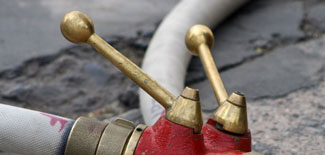 lever ˈliːvə n Projecting handle used to adjust or operate a mechanism.
lever ˈliːvə n Projecting handle used to adjust or operate a mechanism.
to tamper with ⇒ To interfere with something
frenzy ˈfrɛnzi n State of violent mental agitation or wild excitement.
startle ˈstɑːtl v To surprise or frighten someone suddenly but not seriously: frighten, scare, terrify, alarm
clench klɛnʧ v To hold something tightly.
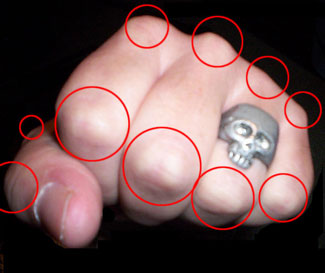 knuckle ˈnʌkl n One of the joints connecting the fingers to the hand.
knuckle ˈnʌkl n One of the joints connecting the fingers to the hand.
gash gæʃ v To penetrate with a sharp edge: cut, slash, pierce, slit, incise
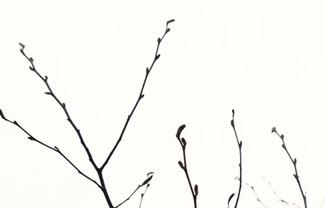 twig twɪg n Small, leafless branch of a woody plant.
twig twɪg n Small, leafless branch of a woody plant.
sob sɒb v Cry noisily, making loud, convulsive gasps: lament, wail, weep convulsively, cry, whimper
rave reɪv v To make a wild or furious sound (of wind, water, storms, etc.): rage
anguish ˈæŋgwɪʃ n State of mental suffering: pain, misery, distress, agony, affliction
uneven ʌnˈiːvən adj Having a coarse, irregular surface: rough, rugged, coarse, jagged, craggy
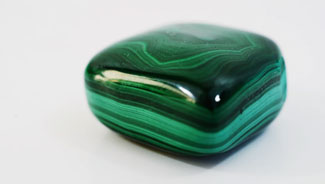 malachite ˈmæləkaɪt n Sight to dark green mineral used for ornamental stoneware.
malachite ˈmæləkaɪt n Sight to dark green mineral used for ornamental stoneware.
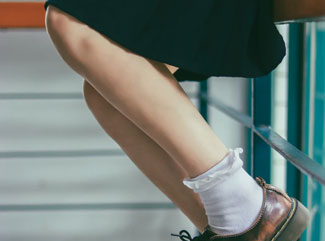 shin ʃɪn n The front part of the leg from the knee to the ankle.
shin ʃɪn n The front part of the leg from the knee to the ankle.
 cushion ˈkʊʃən n A pad with a soft filling, used for resting, reclining, or kneeling: pillow
cushion ˈkʊʃən n A pad with a soft filling, used for resting, reclining, or kneeling: pillow
score skɔː n A group of 20 things.
or so ⇒ (of quantities) Imprecise but fairly close to.
I have no doubt ⇒ I do not doubt.
inarticulate ˌɪnɑːˈtɪkjʊlɪt adj Not able to express ideas clearly and effectively in speech or writing : not articulate
splutter ˈsplʌtə n A series of short, loud noises like the noises of someone who is struggling to breathe.
flare fleə n Brief wavering blaze of light: flame, glow
bawl bɔːl v To shout in a loud angry way and without restraint: bellow
sorely ˈsɔːli adv Very much: badly
it came into my head ⇒ it occurred to me.
revive rɪˈvaɪv v Give new life or energy to or restore from a depressed, inactive, or unused state.
to dash down a match ⇒ To strike a match.
to knock over ⇒ To cause to fall, upset, overturn.
in my course ⇒ on my way.
blunder ˈblʌndə v To move clumsily in an unsteady way, as if you cannot see properly: stumble, lurch, wallow, bumble
the moon crept up the sky ⇒ The moon rose slowly in the sky.
cut off ⇒ To separate, isolate.
to and fro ⇒ back and forth.
to cry upon God and Fate ⇒ To invoke God and Fate to come to help.
to wear away ⇒ pass, usually slowly (of time).
to grope among ⇒ To search blindly or uncertainly among.
at last ⇒ After a long wait; finally.
weep wiːp v To show strong emotions, such as joy or grief, by shedding tears; cry.
wretchedness ˈrɛʧɪdnəs n Unhappiness.
 sparrow ˈspærəʊ n Small bird with brownish or grayish plumage.
sparrow ˈspærəʊ n Small bird with brownish or grayish plumage.
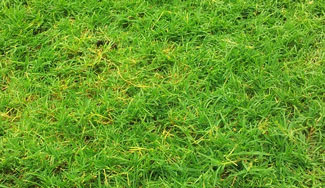 turf tɜːf n Surface layer of earth containing a dense growth of grass and its matted roots: sod
turf tɜːf n Surface layer of earth containing a dense growth of grass and its matted roots: sod
within reach of someones arm ⇒ Close enough to be grasped.
desertion dɪˈzɜːʃən n The act of giving something up: abandonment, forsaking
to come ⇒ clear to become easy to understand.
It behooves me ⇒ I should behove, aм. behoove bɪˈhuːv v To be appropriate or suitable to: become, suit, befit
means of doing something ⇒ A way/mode of doing something
after all ⇒ in spite of all.
cunning ˈkʌnɪŋ n Skill in deception: guile
scramble ˈskræmbl n To move or climb hurriedly, especially on the hands and knees.
weary ˈwɪəri adj Physically or mentally tired or exhausted.
travel-soiled ˈtrævl-sɔɪld adj Made dirty from a long travel.
futile ˈfjuːtaɪl adj Having no useful result: useless, vain, unsuccessful, barren, ineffective
to come by ⇒ To come near.
to fail to do something ⇒ To be unsuccessful in doing something
stolid ˈstɒlɪd adj Without emotion or interest: indifferent, unresponsive, apathetic, impassive, listless
jest ʤɛst n Something said or done to cause laughter: joke
beget bɪˈgɛt pt begot bɪˈgɒt, pp begotten bɪˈgɒtn v To father: get, breed, sire, procreate
curb kɜːb v To control or restrict: keep, check, hold back, restrain, inhibit, rein
to take advantage ⇒ To use something for one’s own benefit.
perplexity pəˈplɛksɪti n The state of being confused and puzzled.
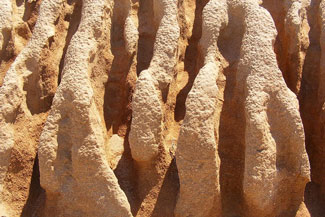 groove gruːv n Long, narrow furrow or channel.
groove gruːv n Long, narrow furrow or channel.
 sloth sləʊθ n A slow-moving tropical tree-living mammal of South America and Central America that hangs upside down from the branches of trees using its long limbs and hooked claws and feeds on leaves and fruits.
sloth sləʊθ n A slow-moving tropical tree-living mammal of South America and Central America that hangs upside down from the branches of trees using its long limbs and hooked claws and feeds on leaves and fruits.
rap ræp v To quickly hit or knock something several or many times.
discontinuous ˌdɪskənˈtɪnjʊəs adj That happens in stages with breaks between them: noncontinuous, broken
something takes effort to do something ⇒ Something requires lots of energy and strength in order to be done.
infer ɪnˈfɜː v To draw a conclusion from evidence or reasoning: gather, conclude, judge, deduce
clad klæd adj Wearing or provided with clothing: dressed, clothed
 blossom ˈblɒsəm n A flower or a group of flowers.
blossom ˈblɒsəm n A flower or a group of flowers.
to beckon to someone ⇒ To call by a movement of the hand.
intimate ˈɪntɪmɪt v To indicate or make known indirectly: suggest, imply, hint, insinuate, allude, indicate
grossly ˈgrəʊsli adv Very, or extremely.
improper ɪmˈprɒpə adj Not in keeping with conventional mores: indecent, indelicate, unseemly, untoward, indecorous, unbecoming
to go off ⇒ To leave.
insult ˈɪnsʌlt n A deliberately offensive act or something producing the effect of deliberate disrespect: abuse, affront
chap ʧæp n A man or boy; a fellow.
ashamed əˈʃeɪmd adj Feeling shame, guilt, embarrassment or remorse.
temper ˈtɛmpə n The tendency of someone to become angry.
 robe rəʊb n A long, loose or flowing garment worn as ceremonial or official dress.
robe rəʊb n A long, loose or flowing garment worn as ceremonial or official dress.
repugnance rɪˈpʌgnəns n Extreme hostility and dislike: hatred, hate, repulsion, detestation, loathing, abhorrence, abomination
all of a sudden ⇒ suddenly.
chuckle ˈʧʌkl n A soft partly suppressed laugh.
to be mistaken ⇒ To be wrong.
 pebble ˈpɛbl n Stone, especially one worn smooth by erosion.
pebble ˈpɛbl n Stone, especially one worn smooth by erosion.
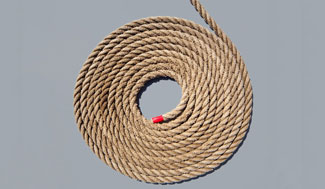 coil kɔɪl n An individual spiral within a series of connected spirals formed by winding.
coil kɔɪl n An individual spiral within a series of connected spirals formed by winding.
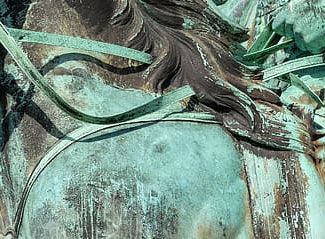 verdigris ˈvɜːdɪgrɪs n Green patina formed on copper, brass, and bronze exposed to air for long periods of time.
verdigris ˈvɜːdɪgrɪs n Green patina formed on copper, brass, and bronze exposed to air for long periods of time.
 flake fleɪk n A small, thin piece of something.
flake fleɪk n A small, thin piece of something.
gusty ˈgʌsti adj Blowing in puffs or coming in sudden strong wind blows.
outbreak ˈaʊtbreɪk n The sudden start of something unpleasant, especially violence or a disease.
furtively ˈfɜːtɪvli adv So silent and secret as to escape observation: sneaky, sneaking, stealthy
at last ⇒ After a long wait; finally.
occidentalˌɒksɪˈdɛntl adj Coming from or relating to the western part of the world
vigil ˈvɪʤɪl n The act of carefully watching: watch, surveillance, vigilance, lookout
wreck rɛk v To destroy something completely: destroy, bring to ruin, ruin , spoil , smash, break, batter
monomania ˌmɒnəʊˈmeɪniə n Pathological obsession with one idea or subject.
clue kluː n Something that serves to guide or direct in the solution of a problem: key, proof, sign, suggestion, trace, mark, idea
toil tɔɪl n Work that is difficult and unpleasant and that lasts for a long time: hard work, labor
devise dɪˈvaɪz v To form or plan in the mind: make up, think up, invent, contrive
at one’s expense ⇒ To one’s detriment or disadvantage.
it has something to do with ⇒ It is associated with.
to feel sure ⇒ To be sure.
abstain əbˈsteɪn v To hold one’s back: keep, hold off, withhold, refrain, forbear
things got back to the old footing ⇒ Things again were as of old.
substantive ˈsʌbstəntɪv n Any word or group of words functioning as a noun.
figurative ˈfɪgjʊrətɪv adj Used with a meaning that is different from the basic meaning and that expresses an idea in an interesting way by using language that usually describes something else: not literal
proposition ˌprɒpəˈzɪʃən n A statement that affirms or denies something and is either true or false
tether ˈtɛðə v To fasten or restrict with a rope or chain.
fifty miles ⇒ 1 mile is 1.609 kilometers.